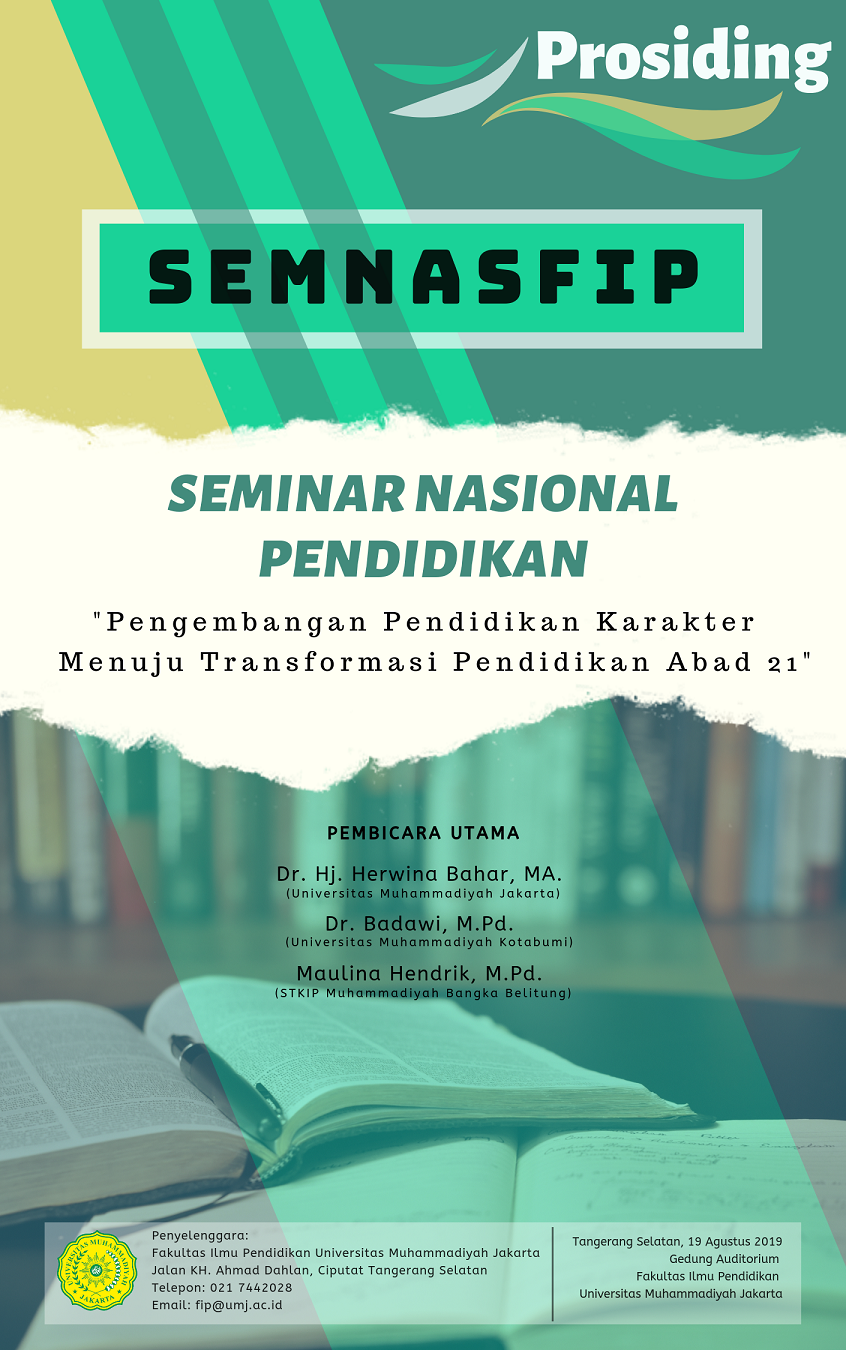ANALISIS PENERAPAN METODE TEAM TEACHING DI KELAS 3 SD STKIP MUHAMMADIYAH BANGKA BELITUNG
Abstract
The purpose of this research is to describe the stages of planning, implementation, and evaluation of the application of the team teaching method conducted by the teacher and facilitator teacher in third grade at SD STKIP Muhammadiyah Bangka Belitung. This research uses descriptive qualitative research methods. Based on the results of this research, the stages of applying the team teaching method are applied as follows: The planning stage, including: the teacher team sharing tasks in preparing the lesson plans, the teacher team preparing the media and learning methods, the teacher team understands the contents of the material and the division of roles and tasks of the teacher team before learning begins. The stages of implementation, including: the process of the initial learning activities begins with morning motivational activities, praying Duha together, reading and writing Al- Quran, conditioning the class beginning learning together, doing presentation, and conveying an outline of learning material to students. The process of core activities collaborating in implementing team teaching methods, carrying out learning in class in accordance with the task of becoming a tutor teacher and accompanying teacher, creating a conducive learning environment, utilizing learning resources and school facilities in learning, applying the full type of team teaching, and implementing two team teaching model is a model of supported instruction and monitoring teacher. The process of closing activities do a question and answer with students and assigning exercises. The evaluation, includes: evaluating teachers and students.References
Ahmad Susanto. (2016). Teori Belajar dan Pembelajaran di Sekolah Dasar. Prenada Media Grup. Jakarta.
Andi Prastowo. (2014). Menyusun Rencana Pelaksanaan Pembelajaran (RPP) Tematik Terpadu Implementasi Kurikulum 2013 untuk SD/MI. Kencana. Yogyakarta.
Danu Eko Agustinova. (2015). Memahami Metode Penelitian Kualitatif: Teori dan Praktik. Calpulis.Yogyakarta.
Emzir. (2010). Metodologi Penelitian Kualitatif: Analisis Data. Rajawali Pers.Depok.
Jamal Ma’mur Asmani. (2011). Pengenalan dan Pelaksanaan Micro Teaching & Team Teaching. Diva Press. Yogyakarta.
Lexy Moeleong. (2013). Metodologi Penelitian Kualitatif. Remaja. Bandung.
Nana Syaodih Sukmadinata. (2016). Metode Penelitian Pendidikan. PT Remaja Rosdakarya. Bandung.
Sugiyono. (2017). Metode Penelitian Kuantitatif, Kualitatif, dan R & D. Alfabeta. Bandung.
Suharsimi Arikunto dan Lia Yuliana. (2016). Manajemen Pendidikan. Graha Cendekia. Depok.
Sumadi Suryabrata. (2018). Metodologi Penelitian. PT. Rajagrafindo Persada. Depok.
Suyatno dan Asep Jihad. (2013). Menjadi Guru Profesional Strategi Meningkatkan Kualifikasi dan Kualitas Guru di Era Global. Esensi. Jakarta.
Djohan Rochanda Wiradinata. (2013). Meningkatkan Kualitas Perkuliahan melalui Team Teaching. Edunomic: jurnal ilmiah pendidikan ekonomi. 1 (2), hlm 69-81.
Heri Maria Zulfiati. (2014). Peran dan Fungsi Guru Sekolah Dasar dalam Memajukan Dunia Pendidikan. Trihayu: Jurnal Pendidikan ke-SD-an.1 (1), hlm 1-4.
Indria Mustika. (2014). Instrumen Penilaian Kinerja Team Teaching pada SMK. Seminar Nasional Evaluasi Pendidikan Universitas Negeri Semarang. Hlm 77-93.
Karin Goetz. (2000). Perspective on Team Teaching a Semester I independent Inquiry. Egallery Exemplary Student Scholarship Master of Teaching Program Faculty of Education. 1 (4), hlm1-11.
Selly Nurina Suraya. (2013). Peran Asisten Guru (Teaching Assistans) dalam Maksimalisasi Proses Pembelajaran di Kelas. Premiere Educandum: Jurnal Pendidikan Dasar dan Pembelajaran. 3 (1), hlm 109-117.

